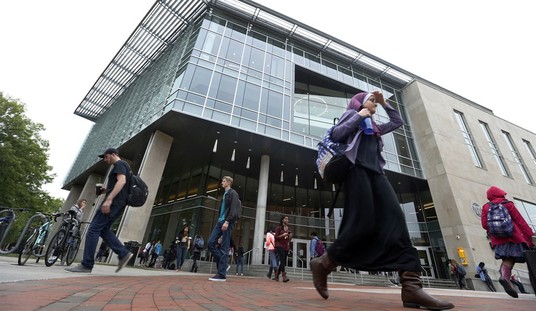Sometimes I see a piece published that genuinely surprises me. That happened on Thursday morning when I came across David Brooks’ latest at The New York Times.
The self-described “anti-Trumper” has spent years denigrating the Republican Party and its voters, insisting that he and his like-minded cohorts truly know what’s best. Brooks has been one of the more self-righteous examples of that anti-Trump movement, going from someone who once called Scooter Libby’s conviction a “farce” to fawning over the crease in Barack Obama’s pants.
Still, in his latest writing, Brooks managed to have a brief moment of self-awareness, describing how the “elites” in modern culture preach diversity and equity to the downtrodden while setting up systems that ultimately benefit themselves.
The meritocracy isn’t only a system of exclusion; it’s an ethos. During his presidency Barack Obama used the word “smart” in the context of his policies over 900 times. The implication was that anybody who disagreed with his policies (and perhaps didn’t go to Harvard Law) must be stupid.
Over the last decades we’ve taken over whole professions and locked everybody else out. When I began my journalism career in Chicago in the 1980s, there were still some old crusty working-class guys around the newsroom. Now we’re not only a college-dominated profession, we’re an elite-college-dominated profession. Only 0.8 percent of all college students graduate from the super elite 12 schools (the Ivy League colleges, plus Stanford, M.I.T., Duke and the University of Chicago). A 2018 study found that more than 50 percent of the staff writers at the beloved New York Times and The Wall Street Journal attended one of the 29 most elite universities in the nation.
Certainly, Brooks is right about the dynamic at play in the professional world. Journalism today isn’t about eliciting broad viewpoints and on-the-ground experiences in order to give a complete picture to the reader. It’s about repeating the same narrow talking points while living in an overpriced loft in a liberal bastion and complaining about the student debt you racked up from Columbia.
Few journalists today have any connection to the rest of the country and what it’s like. Yet, they are expected to cover it. That shows in their reporting, and it’s one of the reasons journalism as a profession is at its lowest point in modern history. Few people still respect the “fourth estate,” and the wounds are completely self-inflicted.
Brooks continued with some commentary on the culture.
Like all elites, we use language and mores as tools to recognize one another and exclude others. Using words like problematic, cisgender, Latinx and intersectional is a sure sign that you’ve got cultural capital coming out of your ears. Meanwhile, members of the less-educated classes have to walk on eggshells, because they never know when we’ve changed the usage rules, so that something that was sayable five years ago now gets you fired.
We also change the moral norms in ways that suit ourselves, never mind the cost to others. For example, there used to be a norm that discouraged people from having children outside of marriage, but that got washed away during our period of cultural dominance, as we eroded norms that seemed judgmental or that might inhibit individual freedom.
I’d note that even in Brooks’ attempt at an olive branch on language, he still manages to encapsulate the problem by referring to others as the “less-educated classes.” Using terms like “cisgender” and “Latinx” isn’t a product of superior intellect and formal training. It’s a project of partisan ideologues trying to force their absurd views on others via the threat of ostracization. Education doesn’t cause someone to believe that a man can become a woman. Politics does. Brooks is correct, though, that normal people are left walking on eggshells, wondering what word has been rendered offensive on any given day.
He’s also right that left-wing elites spent decades eroding social norms and basic morality, only to retreat back into those things while the rest of the world burned as a result of their endeavors. The sexual revolution was one of the most cynical projects in American history. Those who popularized it on an intellectual level ended up going to college, getting married, and living in the suburbs. On the other hand, those they pushed their views on ended up addicted to drugs, pregnant out of wedlock, and left to the devices of a society that no longer cared.
Of course, after writing hundreds of words lamenting the harm caused by the machinations of the elites, Brooks still managed to fall right back into the very mindset he had just finished critiquing.
Are Trump supporters right that the indictments are just a political witch hunt? Of course not. As a card-carrying member of my class, I still basically trust the legal system and the neutral arbiters of justice. Trump is a monster in the way we’ve all been saying for years and deserves to go to prison.
In other words, Brooks seemingly believes that various aspects of the system are self-serving and corrupt, but as long as it’s going after Donald Trump, it should still be trusted. It doesn’t even dawn on him that his warnings about the professional class also apply to the political class, to the extent that they aren’t completely overlapped anyway.
That’s a disconnect Brooks won’t try to reconcile because ultimately, despite showing some basic self-awareness, his goal is still the same: To ensure the system benefits him.













Join the conversation as a VIP Member